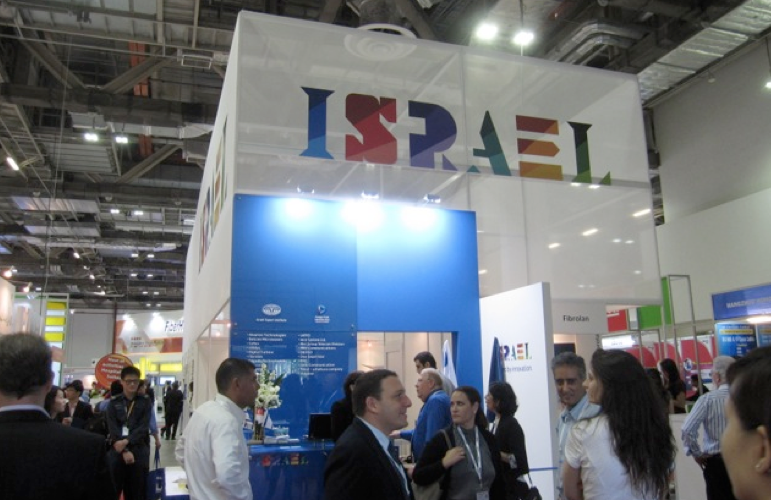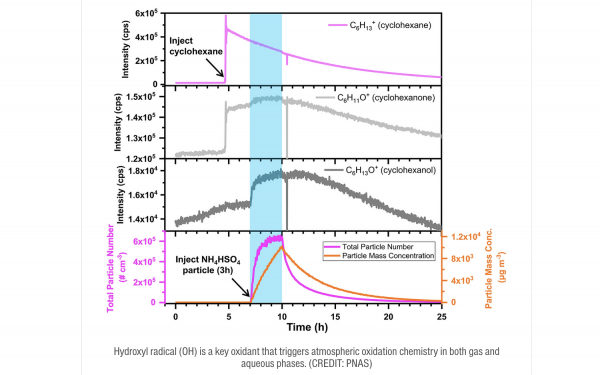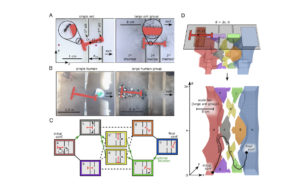COMMUNICASIA 2015 : 20 sociétés israéliennes présentent leurs technologies mobiles et participent à des centaines de RV d'affaires

[:fr]Le département du commerce extérieur au ministère israélien de l’Economie, via sa mission commerciale à Singapour et en coopération avec l’Institut israélien de l’export, va organiser le stand national israélien au salon international CommunicAsia, du 2-au 5 juin 2015, une des expositions phares sur la communication mobile en Asie. Des représentants de 20 entreprises israéliennes présenteront leurs technologies sur ce stand, représentant une vaste gamme de solutions technologiques israéliennes de premier plan dans les domaines mobiles telles que l’optimisation des réseaux, des solutions de télévision numérique et l’IOT.
Quelques 40 000 participants venus de toute l’Asie du Sud-Est sont attendus à l’exposition, qui a lieu la première semaine de Juin. Les missions commerciales du ministère israélien de l’économie à travers l’Asie ont coordonné des centaines de réunions pour les représentants des entreprises israéliennes avec les décideurs de du Vietnam, des Philippines, de Taïwan, de Thaïlande, d’Indonésie et de Singapour. L’expo est unique par les possibilités qu’elle offre aux entreprises de créer des liens sur de nouveaux marchés éloignées comme l’Indonésie, d’où 30% des visiteurs arrivent.
Parmi les sociétés présentes : RAD, MER Telecom, One Smart Star, Fibrolan, Alvarion, Vidmind, MRV, IPGallery, Friendly Technologies, cVidya, Latto, Office Core, Cellmining, mce Systems, Kaltura, Foxcom, SURF Solutions, Appnext, Viaccess-Orca and Allot.[:en]The Foreign Trade Administration at the Israeli Ministry of Economy, through its Singapore Trade Mission and in cooperation with the Israel Export Institute, are facilitating the Israeli national booth at the CommunicAsia communications expo, one of the flagship mobile communications exhibitions in Asia. Representatives from 20 Israeli companies will be presenting their technologies at the booth, representing the wide range of technological solutions Israel offers in leading mobile fields such as optimization for networks, digital TV solutions and IOT.
Among the companies represented at the booth: RAD, MER Telecom, One Smart Star, Fibrolan, Alvarion, Vidmind, MRV, IPGallery, Friendly Technologies, cVidya, Latto, Office Core, Cellmining, mce Systems, Kaltura, Foxcom, SURF Solutions, Appnext, Viaccess-Orca and Allot.
Some 40,000 participants from all over Southeast Asia are expected to attend the expo, which takes place in the first week of June. Trade missions of the Israeli Ministry of Economy across Asia have coordinated hundreds of meetings for representatives of the Israeli companies with decision makers from different countries, primarily Vietnam, the Philippines, Taiwan, Thailand, Indonesia and Singapore. The expo is unique in the opportunities it offers for companies to create ties in new and remote markets like Indonesia, from where 30% of the visitors to the expo arrive.
Ron Snir, Head of Trade Mission for the Israeli Ministry of Economy in Singapore said: « For many years, the Israeli trade mission in Singapore has been active in the largest telecommunications event of its kind in Asia, and like in past years, is facilitating a booth at the exhibition. We see great interest in Israeli technologies and companies from firms and other bodies throughout Asia in recent years, especially in light of significant exits. A basket of products has been developed for the different and changing needs of the markets in the region with attractive prices compared with similar companies from other Western nations. »
Ilan Rosenberg, of the Hi-Tech Division at the Israel Export Institute, said: « The expo provides a unique platform for Israeli companies and serves as an excellent meeting grounds for partners and clients from all over Southeast Asia. This year, in addition to the traditional visitors coming to the expo like cellular operators, device manufacturers and integration companies, we also expect to see senior representatives from financial companies (banks), smart infrastructure, cyber-security and more. The Israeli companies will present a range of technologies at the expo, including: a solution for compressing and sending 4K video clips, long-distance optimization and updating, a platform for smart TV and solutions for cloud services (NFV/SDN), MEDIA & OTT and IOT: smart transportation, payment solutions and more. »
Ahead of the expo, the Israeli companies will visit Vietnam and meet with representatives of the three largest cellular operators in the country, senior officials in the Vietnamese Communications Ministry as well as with local distributors.
Head of Trade Mission to Vietnam from the Israeli Ministry of Economy, Tzafrir Asaf, said: « 90 million Vietnamese own more than 130 million mobile devices, and content and Value Added Services on mobile devices is consistently on the rise. It is therefore understandable that there is a growing market here that has become more and more significant for Israeli companies active in this field. »
According to the Foreign Trade Administration at the Israeli Ministry of Economy, over the last decade, Israeli exports to Asia trebled, from $5.8 billion in 2004, to $16.7 billion in 2014. Trade with ASEAN countries (the trade union of Southeast Asian countries, not including India and China) also trebled over the past decade – from $1 billion in 2004 to $3 billion in 2014.
Singapore is Israel’s largest trade partner in Southeast Asia, with trade between the countries standing in recent years at $1.6 billion, divided roughly evenly between Israeli and Singaporean exports, with communications equipment making up 10% of trade between the two countries.
The economy of Singapore is based significantly on exporting goods and services, mainly electronic consumer products, IT systems, pharma products and significant sectors of exported services. Singapore enjoys a modern infrastructure which is a permanent catalyst of growth, including an efficient sea port (almost all global shipping and trade from the East to the West stops at the Singapore port). In the middle of 2010, the Singaporean Ministry of Industry published impressive data showing 14.5% growth (an additional 5% was noted in 2011), data which puts Singapore in the top tier of developed countries worldwide. Since then Singapore is growing at an average rate of 4.5% annually, and reached a GDP of $67,000 per capita.
Singapore succeeds in drawing many foreign investments in different sectors and excels in encouraging foreign companies and multinationals which choose to locate their regional management HQs there and thus contribute to local development and knowhow. The Singaporean economy is dynamic, competitive and efficient and is based on excellent physical infrastructure and a leading academic infrastructure which develops technological and professional human resources. Most banks, insurance companies and global investment houses have centers in Singapore and give the country an excellent business and financial base for the operation of multinationals, manufacturing industries, businesses and corporations which are active there or in other southeastern Asian countries with Singapore as a base. The mobile market in Singapore is an active market with much interest in innovation and in groundbreaking products and can be viewed as the entry gate to the rest of Asia. The prices of mobile devices and services in Singapore are the lowest in the world compared to average income, with mobile market penetration rate estimated at 165%.[:]







